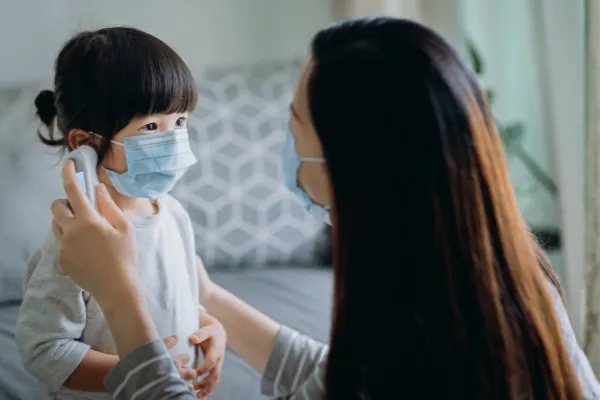Topics
Breast cancer is one of the most prevalent cancers impacting women globally. It continues to be a major health concern in Malaysia, where thousands of women receive a diagnosis every year. Early detection is important in improving survival rates, as there is an increased chance of successful treatment when cancers are detected during their early stages.
There is a common belief that a painful lump is the only sign of breast cancer. However, there are many other symptoms that you should watch out for, which include changes in the breast's appearance, texture, or feel. Knowing and identifying signs and symptoms can encourage more women to get breast cancer screenings more frequently in Malaysia, which leads to saving more lives through prompt diagnosis.
1. You Feel a Lump or Swelling in Your Breast or Underarm
Usually, the most common symptom of breast cancer is feeling a lump or swelling in the breast or underarm. These lumps feel solid or have irregular edges, unlike the softer tissue surrounding them. Although not all lumps are malignant, many can still be benign conditions such as cysts–which are persistent or growing lumps that should never be disregarded.
-
Armpit lumps can indicate swollen lymph nodes, which may suggest that the cancer is spreading.
-
Self-examination is important for early detection because some lumps can be painless.
-
Breast cancer lumps may not change with the menstrual cycle and may not constantly follow hormonal patterns.
2. You May Notice Changes in Your Breast Size or Shape
Potential breast cancer signs include abrupt and unexplained changes in breast size, shape, or symmetry. Close monitoring is necessary for even small differences in one breast in comparison to the other.
-
Breast cancer can lead to swelling in one breast because of fluid build-up or an expanding tumour.
-
Sometimes you may not feel pain during these changes, which makes visual inspection important during self-examinations.
3. Noticing Dimpling or Puckering of Your Breast Skin
When cancer blocks lymphatic vessels in your breast, dimpling or puckering happens, causing fluid retention and changes in the skin. Minor indentations may occur on the breast’s surface, resembling an orange peel’s ("peau d’orange") texture.
-
Lymphedema (swelling caused by an accumulation of fluid) can exacerbate this symptom as well.
-
Although it is usually painless, this skin condition may be a sign of an aggressive form of breast cancer, such as inflammatory breast cancer.
-
If dimpling occurs and is left untreated, it is crucial to consult a doctor right away.
4. Noticing Nipple Retraction or Nipple Changes
Breast cancer in certain cases can cause nipple retraction, which means the nipple turns inward or flattens. This happens when a tumour causes the normal structure beneath the nipple to change, pulling it inward.
-
It is a red flag if your nipple suddenly changes its shape and is not inverted previously.
-
Scaly or crusty skin surrounding the nipple or the appearance of sores are other examples of nipple changes.
-
Pain may be accompanied by this symptom as well, although it is only present sometimes.
5. Realising Nipple Discharge (Apart from Breast Milk)
Unexpected nipple discharge is another potential breast cancer symptom. The discharge colours may vary from clear, yellow, or even blood-stained.
It is concerning if your discharge appears without squeezing or only from a single breast.
While nipple discharge can be connected to benign conditions, medical evaluation is needed if you experience persistent discharge.
This symptom usually happens when the cancer is close to the milk ducts.
6. You Experience Constant Breast or Armpit Pain
When you feel pain in the breast or armpit area, occasionally it can indicate a symptom of breast cancer, particularly when it does not fluctuate with the menstrual cycle.
-
One way to describe the pain is a dull ache or sharp, stabbing sensation.
-
The pain can also reach the armpit part, especially if there is an involvement of lymph nodes.
-
Although breast pain is usually connected to changes in hormones or infections, constant discomfort or pain that persists beyond a few weeks should be checked by a doctor.
7. Your Lymph Nodes Under the Arm or Near the Collarbone are Swollen
Lymph nodes near the breast, armpit, or collarbone that are swollen and enlarged can be an early symptom of breast cancer.
-
Lymph nodes filter the immune system and the nodes swell when cancer spreads.
-
You may feel the firmness or hardness of these nodes, and they do not get smaller over time, even if there is no infection.
-
A crucial symptom to monitor is enlarged lymph nodes as they may show up before any other changes in the breast.
Frequently Asked Questions about Breast Cancer Symptoms
1. What is triple-negative breast cancer?
Triple-negative breast cancer is missing the three common receptors (oestrogen, progesterone, HER2), it is usually more aggressive and more difficult to treat.
2. Will my risk of breast cancer increase through hormone replacement therapy (HRT)?
Some studies suggest a link between long-term HRT use and a slightly increased risk of breast cancer. Discuss risks and benefits with your doctor.
3. Is breast cancer hereditary?
Yes, breast cancer can be hereditary. Genetic mutations such as BRCA1 and BRCA2 increase the risk of breast cancer, so women who have a family history of cancer should take genetic counselling into account and attend screenings regularly.
4. Can breast cancer occur to men?
Men can develop breast cancer although it is rare. They should seek medical attention right away if lumps, nipple discharge, or changes in their chest area develop.
5. What is a biopsy, and why is this necessary?
A medical procedure where a removal of a tiny sample of tissue or cells from the body for examination under a microscope is called a biopsy.
Schedule an Appointment at Pantai Hospitals
These 7 signs and symptoms listed in the article may not always be related to breast cancer, but they should never be ignored. Frequent self-examinations, visual inspections, and clinical screenings are important for early detection.
If you have inquiries about breast cancer, get in touch with us to book an appointment or download the MyHealth360 app from the Google Play Store or Apple App Store
Pantai Hospitals have been accredited by the Malaysian Society for Quality in Health (MSQH) for its commitment to patient safety and service quality.













